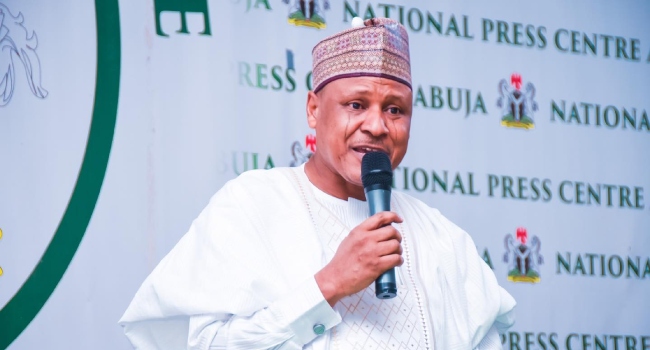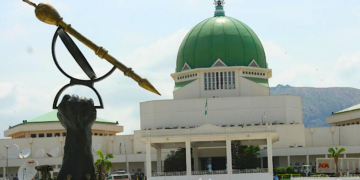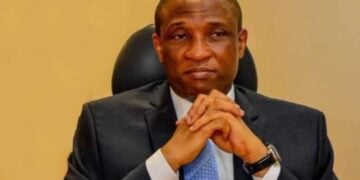The federal government announced Tuesday that it has disbursed N32.8 billion to more than 169,000 indigent students through the Nigerian Education Loan Fund (NELFUND).
The federal government said N20 billion was spent on school fees and N12.8 billion on maintaining student allowances.
The minister of information and national orientation, Alhaji Mohammed Idris, disclosed this at a press briefing yesterday in Abuja, which was billed as a regular Ministerial Press Briefing.
He said the disbursement was part of the administration of President Bola Ahmed Tinubu’s efforts to ensure that no Nigerian child is unable to attend a higher institution because of poverty.
Speaking on the programme’s sustainability, the minister said it is transparent and can enrol as many qualified people as possible.
“The federal government made provisions for 500,000 people when the student loan scheme started. As of today, only 169,000 have been captured. This means there is still space for more people.
“The programme is a very straightforward and streamlined scheme. All those who were qualified have been taken. You didn’t meet the criteria if your application didn’t sail through. It is purely online, and there is no discrimination against it.
“If you get admission today and are enrolled, you are assured of the subsequent year until you graduate. That is the standard. We don’t want a situation where you get the loan for the first year and cannot continue with your education in the subsequent years.
“That is why the loan is divided into two parts. The first part is school fees while the second is upkeep allowance,” he said.
Also, answering questions on the possibility of the government controlling the price of food given the high price in the market despite government efforts, the minister ruled out price control for now.
The current administration is investing massively in agriculture and encouraging private sector investment to drive down food prices.
He said, “You know, in the past, we used to have these commodity boards where prices were fixed, but in the spirit of free market and encouraging entrepreneurship, especially within the agricultural value chain, the government didn’t feel that they needed to begin to control prices now.
“What the government is doing is to ensure massive food production. Food price is a supply and demand issue. Once you have whatever you need in abundance, the tendency is that the price will automatically come down.
“However, this government is also a very dynamic one. The government is a listening one. This is what the government is doing at the moment. If we go further, I still feel that there’s a need for the President or the Federal Executive Council to look at that.
“Now, I’m not saying the government wants to control food prices, and I don’t want to be reported as saying that.
“I’m saying that now the government feels there should be a free market, a market that people can operate within—a market where young and educated people can invest in agriculture and make a profit.
“Look at what is happening in Nigeria. In many states, people are massively investing in agriculture, and if this trend continues in the next few years, Nigeria will certainly be sufficient in food production.”
While speaking on the successes in the security sector, Idris said in 2024, the security forces neutralised more than 8,000 terrorists and bandits and arrested 11,600 others, with more than 10,000 weapons recovered.
He stated that with the government’s sustained efforts against terrorists and bandits, the nation’s highways are becoming increasingly safer.
“While we still have a lot of work ahead, our highways have grown safer. The hitherto notorious Abuja-Kaduna highway is one example. As I said, much more must be done, and we will not relent in our efforts.
“Additionally, about 8,000 kidnap victims were successfully rescued. We will continue to work to drive down the number of victims while scaling up our success stories in terms of deterrence, crime-solving, and prosecutions,” he said.
The Minister added that following their designation as a terrorist organisation by a Federal High Court, security forces are now empowered to apply maximum force against the Lakurawa armed group.
Regarding the economy, Idris stated that the federal government’s reforms deliver significant results across key sectors, particularly with removing the fuel subsidy, which has successfully plugged leakages amounting to hundreds of billions of Naira annually.
He said introducing the Electronic Foreign Exchange Matching System (EFEMS) in December 2023 has enhanced transparency in foreign exchange transactions, facilitated the clearance of billions of dollars in backlogs, and restored investor confidence in the country.
“Last week, the Naira reached an eight-month high in the official market, while foreign capital inflow into the Nigerian Stock Exchange rose from 4% in mid-2023 to an average of 16% by the end of 2024,” he said.
Additionally, he said, in 2024, Nigeria emerged as the most attractive destination for oil and gas investments in Africa, securing over $5 billion in Final Investment Decisions (FIDs).
The Minister described 2025 as a year of consolidation, building on the progress made in the first 19 months of the Tinubu administration as it approaches its mid-term.
“Over the next three months, as we approach the second anniversary of President Bola Ahmed Tinubu’s Administration, we will bring Honorable Ministers to this platform every week.
“This year 2025 is a year of consolidation, a year for building on the gains we have seen in the first 19 months of the administration. This maiden edition for 2025 is an opportunity to remind us of these gains and to set the context in which these gains are being recorded as we proceed into the mid-point of this administration,” he said.





